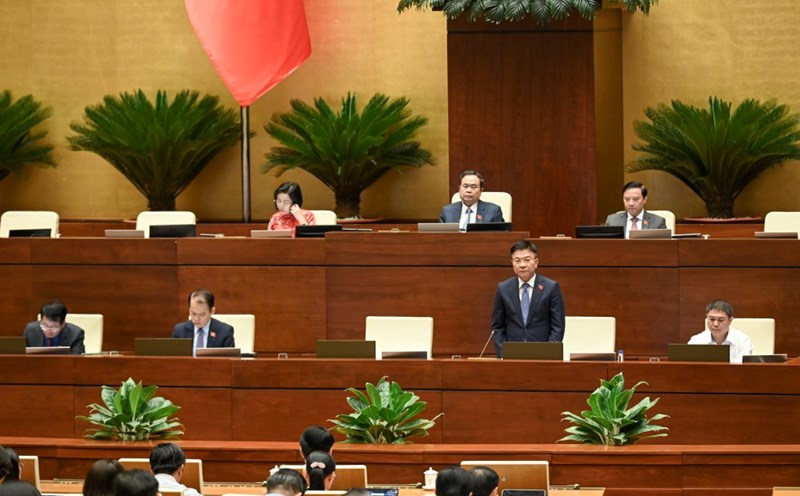On the morning of May 27, the National Assembly discussed in the hall the draft Law amending and supplementing a number of articles of the Penal Code.
Regarding the proposal to abolish the death penalty for 8 crimes, Deputy Prime Minister Le Thanh Long stated that by 2024, 142/193 United Nations member states had abolished the death penalty.
In the draft law amending and supplementing a number of articles of the Penal Code, 8/18 crimes with a death penalty in the current law have been proposed to abolish the death penalty and replace it with life imprisonment without a reduced sentence.
Reducing crimes with the death penalty is not a given for crime, but is in line with the general trend of the progressive world.
Civilized countries abolish the death penalty because they believe other penalties are enough to deter criminals, while promoting the value of life.
The crimes are the project of abandoning the shaped framework of activities to overthrow the people's government; spy crimes; Crime of destroying Vietnamese facilities and techniques; Crime of production and trading of fake goods is a medicine and preventive medicine; illegal transportation of narcotics; Crime of property embezzlement; guilty of accepting bribes; Crime of destroying peace, causing war invasion.
There are many opinions that do not agree to abolish the death penalty for the crimes of embezzlement and bribery.
According to the Ministry of Public Security, these crimes are not "crimes", do not violate human life, do not directly violate national security, and do not need to deprive of life. This is also a common trend in the world.
The death penalty is not applied, but instead, life imprisonment without a reduction in sentence is still a deterrent because this is a particularly severe penalty, permanently depriving a person of freedom.
There are also opinions that if the death penalty is not applied, criminals who are greedy and accept bribes will not be afraid, so they will not return their greedy and corrupt assets.
However, there are also opposing opinions, abolishing the death penalty to create conditions to encourage criminals to cooperate in investigating, overcoming the consequences, and returning corrupt assets.
Life imprisonment is enough for criminals to be afraid and find ways to return their corrupt assets to enjoy leniency. Therefore, it is not necessary to add "no reduction in sentence".
Delegate Truong Trong Nghia said: "The joint venture that does not consider reducing sentences not only assigns the State the responsibility of raising and protecting prisoners for life, but also erases the hope of their and their families' salaries. Therefore, this sentence does not have a positive effect on prisoners' reform".
This is a quite convincing viewpoint, which needs to be considered to have appropriate regulations.











